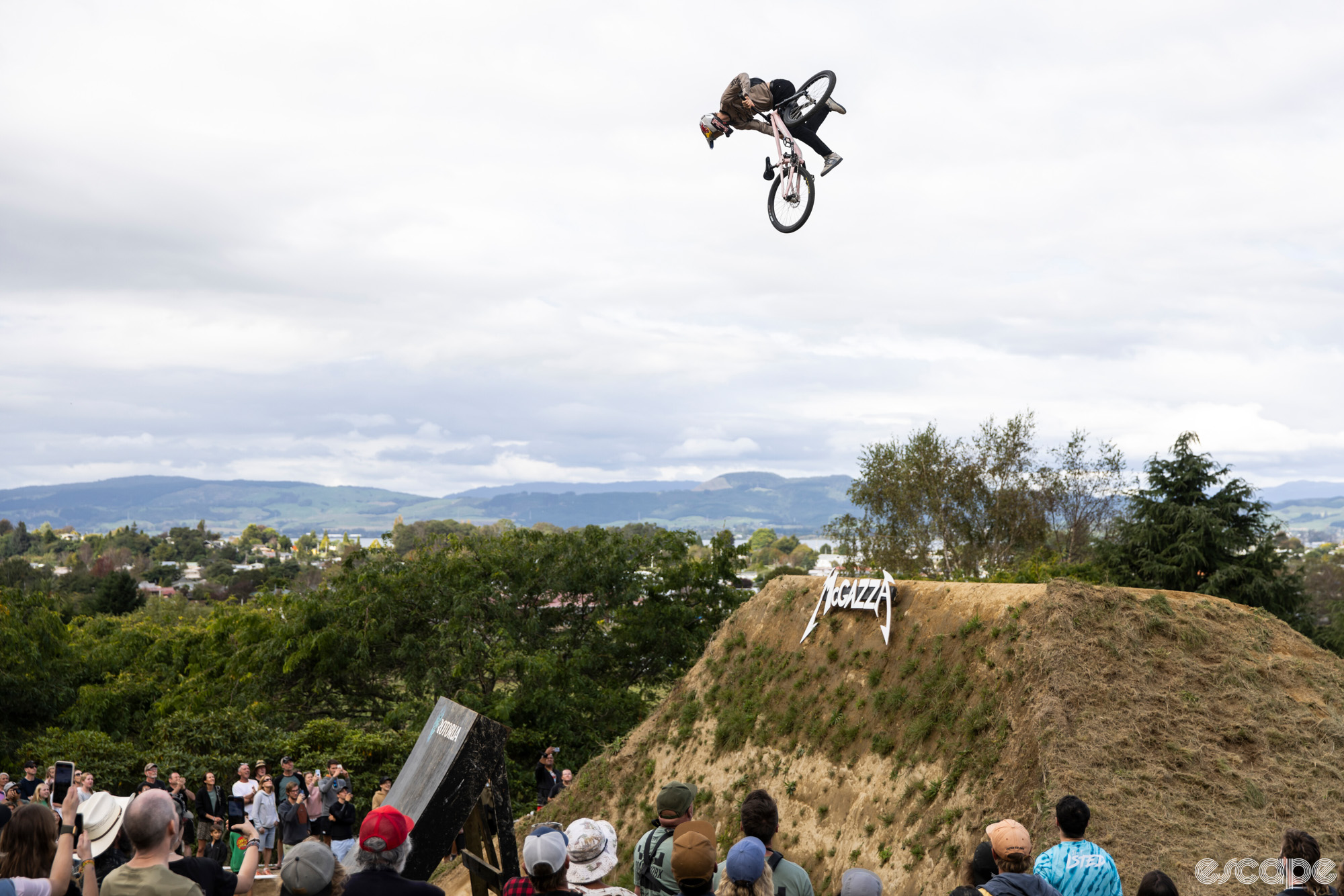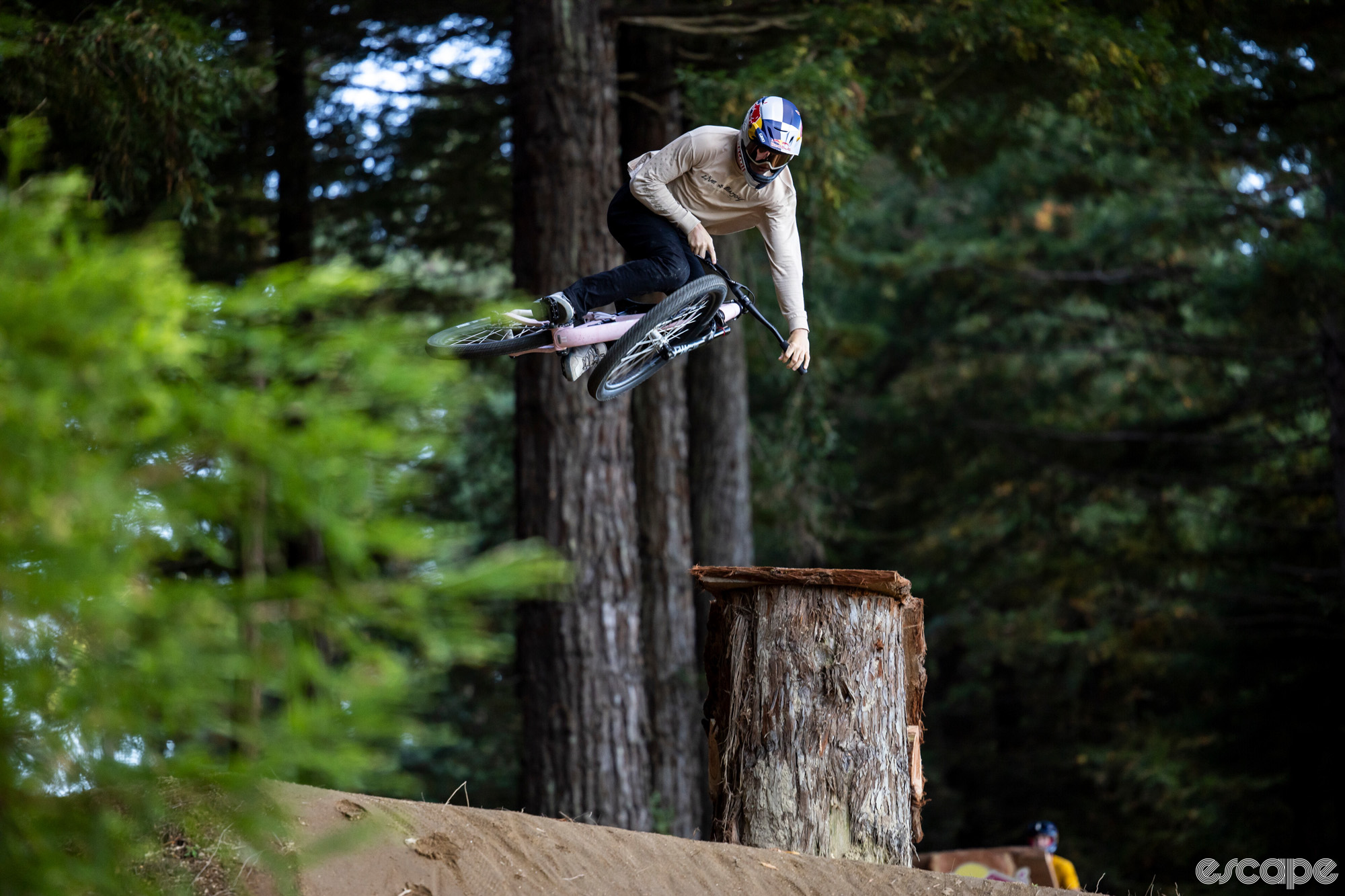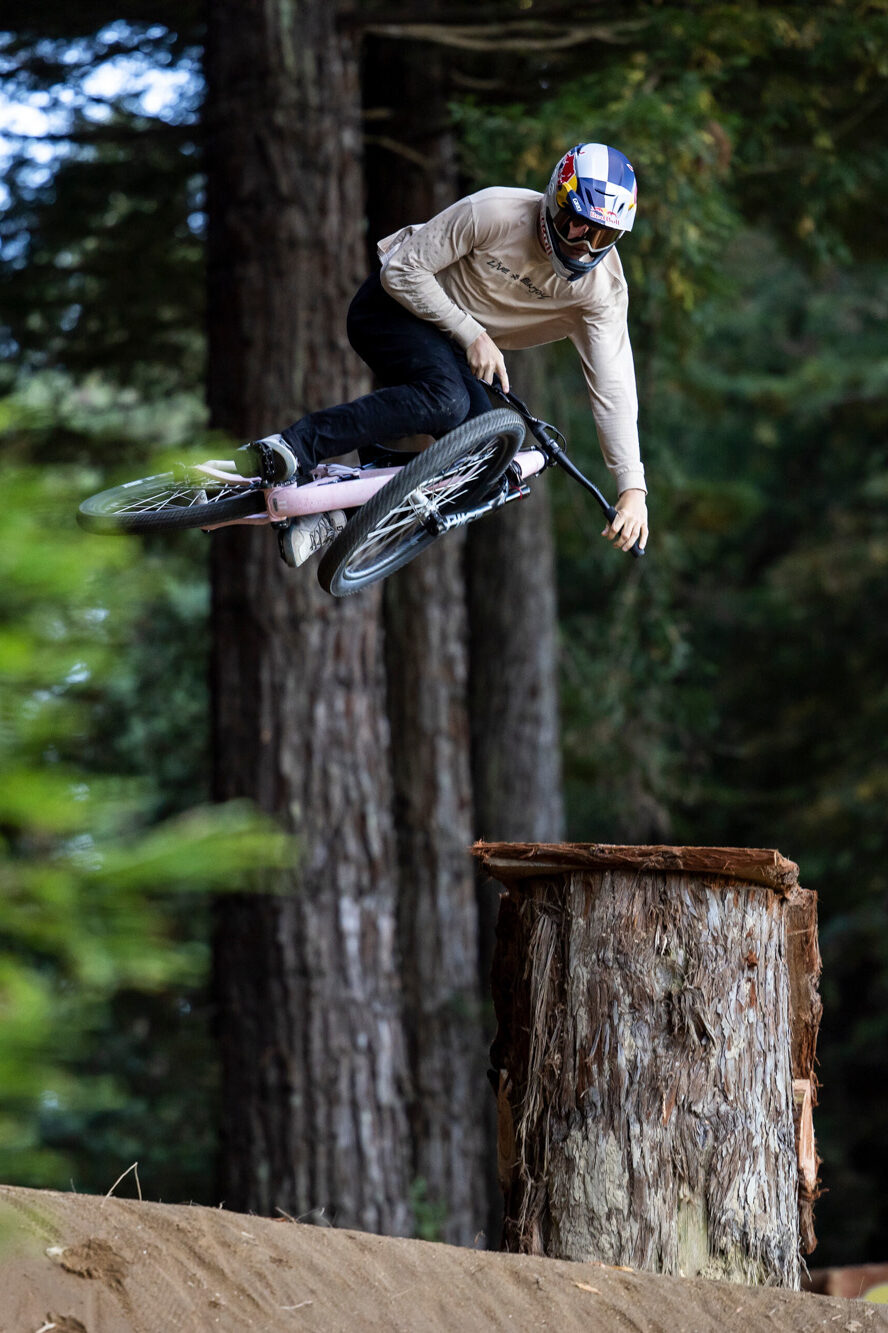A major statement has been made in New Zealand this weekend as the male Slopestyle athletes have effectively announced a strike, all 16 of the invited riders withdrawing from Sunday’s Crankworx opener in Rotorua via a collective statement.
“As you will have heard, we, as the full field of male Slopestyle riders at Crankworx Rotorua, have made a joint, but very tough, decision to not take part in the official competition tomorrow,” read the statement, as reported by PinkBike who are on the ground in New Zealand. “But we will be at the event in full support of the girls as they make history, with the first ever female Diamond Slopestyle event. We will also be riding the McGazza train [an annual memorial ride for New Zealand mountain biker Kelly McGarry who died in 2016] and out there for our fans.”
Riders travel from all over the world to compete in the Crankworx series, essentially the biggest mountain bike festival on the planet with a number of international stops on the circuit, starting in Rotorua this weekend. Slopestyle is one of the series’s marquee events, drawing fans from far and wide who are eager to see the invite-only athletes performing at the top of their game. For the full field of 16 men to make this decision has made a real mark on the event.
“Today has been a tough day and there have been plenty of questions about why we aren’t riding and why this decision was made now. We all came to Rotorua with the full intention to start our season, commit fully to this amazing event and ride to our full potential. So why aren’t we riding?
“The short answer; we want to secure a stable and sustainable future for Slopestyle – including the current and future generation of riders. This decision was made to ensure a minimum industry standard is achieved moving forward with rider welfare, safety, compensation, but also communication and decision-making established. Not just singularly for the Crankworx Rotorua event, but for the whole Crankworx and FMB World Tour.”

This has been an ongoing issue for the Slopestyle community, “years of negotiation, countless meetings, and many letters”, leading to this landmark action for the benefit of the riders and the sport.
“This timeline is not what we hoped for. At this stage we won’t be discussing the specifics of the conditions we requested from Crankworx as an organisation, as we don’t believe this is the right place or time to do so. But we want it known that this is not a ‘shakedown’ for compensation – it’s bigger than that.”
The statement raised a couple of specific concerns:
- safe competition conditions, including practise sessions and consideration of competition timings
- Basic rider welfare and participation costs, not least for “new blood” on the circuit; this year there’s been a major reduction of support for riders, meaning some were simply unable to accept the invitation to compete
“These are events that we ride in, risk our bodies and careers on, and are a key drawcard for and we believe we should have a seat at the table,” the statement goes on. “Now is the time for change – time after time we’ve either been ignored, denied or simply not taken seriously which has left us with no other option but to make a point the only way we can. We have felt disrespected and unheard when all we’ve requested is simple support for all riders.
“We love this event, we love Rotorua and the fans. We hope that we can find a resolution with Crankworx and FMB to continue the growth of Slopestyle, to showcase incredible riding, and to continue creating amazing memories for fans of mountain biking across the world.”
You might think, ‘This is a bit outside your remit, chaps,’ and you’d be right, but it’s an important story for the world of cycling where there’s rarely any sort of collective action. Road cyclists might threaten, but rarely do they pull off anything significant outside of the immediate danger of extreme weather. Here we have a select group of athletes, many of them individual riders who are not supported by a team structure, let alone any kind of formal union, who are taking what is essentially grass roots action in an attempt to force systemic change.
Did we do a good job with this story?


